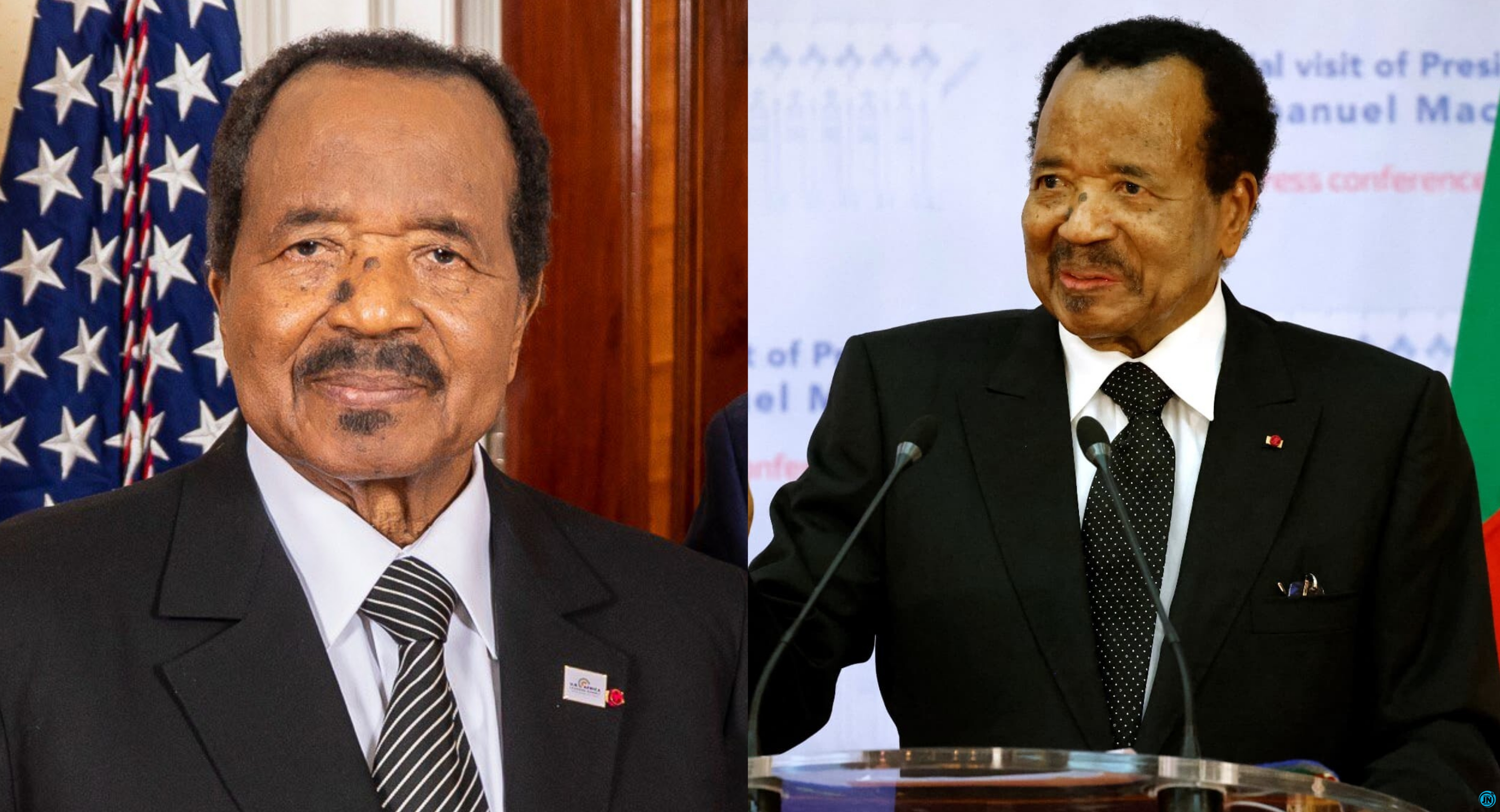
Cameroon’s long-serving president, Paul Biya, has once again secured victory in the country’s presidential election, officially winning a record-breaking eighth term in office. The announcement has drawn both celebration and controversy, marking yet another chapter in Biya’s four-decade rule over the Central African nation.
According to the final results released by the Constitutional Council on Monday, the 92-year-old leader clinched 53.66% of the total votes cast, extending his already historic tenure as one of the world’s longest-serving heads of state. His main challenger, Issa Tchiroma Bakary, trailed behind with 35.19% of the vote, while other candidates shared the remaining percentage.
The election, held on October 12, 2025, was marred by tension, opposition protests, and allegations of irregularities. Yet, Biya’s ruling Cameroon People’s Democratic Movement (CPDM) maintained that the process was free, fair, and reflected the will of the people.
In a nationally televised address following the declaration, Biya thanked Cameroonians for their “unwavering confidence” in his leadership, promising to continue working toward peace, unity, and economic stability across the nation. He urged citizens to look beyond political divisions and focus on rebuilding the country together.
Biya’s Four-Decade Rule Continues
Clement Atangana, President of the Constitutional Council, officially proclaimed Biya as the “President-elect,” confirming his triumph after a long week of vote counting and legal reviews. The announcement was met with mixed reactions across the nation — jubilation from his supporters and anger from the opposition.
With this victory, Biya, who has governed Cameroon since 1982, is now set to remain in power until 2032 — when he will be approaching 100 years old. His decades-long reign has seen periods of both relative stability and intense unrest, earning him a reputation as one of Africa’s most enduring leaders.
Throughout his rule, Biya has faced numerous challenges, including separatist conflicts in the Anglophone regions, corruption allegations, and widespread calls for political reform. Despite these hurdles, he has maintained tight control over the government and the country’s political system.
Supporters describe him as a symbol of continuity and stability, while critics argue that his prolonged leadership has stifled democracy and suppressed political opposition. His victory has reignited conversations about succession planning and the future of Cameroon’s political landscape.
Allegations and Tensions Surround Election Results
In the aftermath of the announcement, opposition figures and human rights groups voiced concerns over alleged irregularities during the election. Reports of voter intimidation, ballot manipulation, and restricted access for independent observers have fueled doubts about the credibility of the results.
Issa Tchiroma Bakary, Biya’s main opponent, rejected the official figures, claiming that he had actually secured 54.8% of the votes. In a statement shared on social media, he accused the ruling party of orchestrating “massive electoral fraud” and called on Cameroonians to defend democracy through peaceful protest.
His supporters took to the streets in several cities, including Yaoundé and Douala, demanding transparency and justice. Unfortunately, the demonstrations turned violent in some areas, leading to clashes between protesters and security forces. Reports from local media indicated that at least four people were killed and over 100 others were detained during the unrest.
The government has since deployed additional security personnel in major urban centers to maintain order and prevent further escalation. Officials have urged the opposition to seek redress through legal means rather than street protests.
Concerns Over Cameroon’s Political Future
Biya’s reelection has raised serious questions about the country’s political future and the possibility of a generational transition in leadership. Many Cameroonians, especially the youth, are growing increasingly frustrated with the lack of change and the absence of fresh political voices.
Analysts say the president’s advanced age and health have become major talking points, with some questioning whether he can continue to govern effectively for another seven years. The growing demand for reform and modernization is expected to shape Cameroon’s political discourse in the coming years.
International observers have called for calm and dialogue between the government and opposition parties, urging both sides to prioritize national unity over political rivalry. Meanwhile, the African Union and other regional bodies are closely monitoring the situation to ensure peace and stability are maintained.
As Cameroon begins another chapter under Biya’s leadership, citizens remain divided — some hopeful for continuity and stability, others yearning for change and renewal. Whether this new term will bring progress or deepen existing challenges remains to be seen.